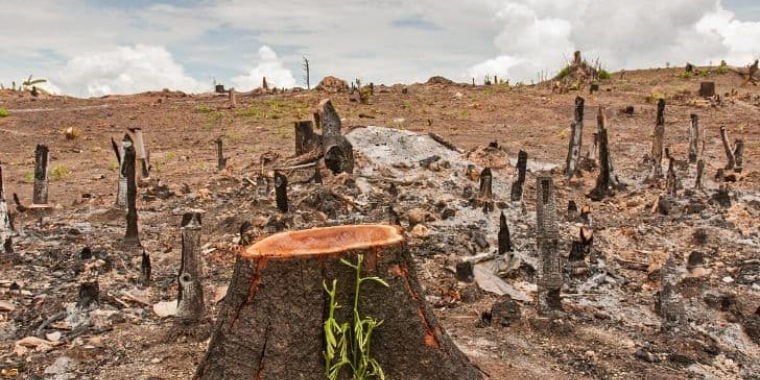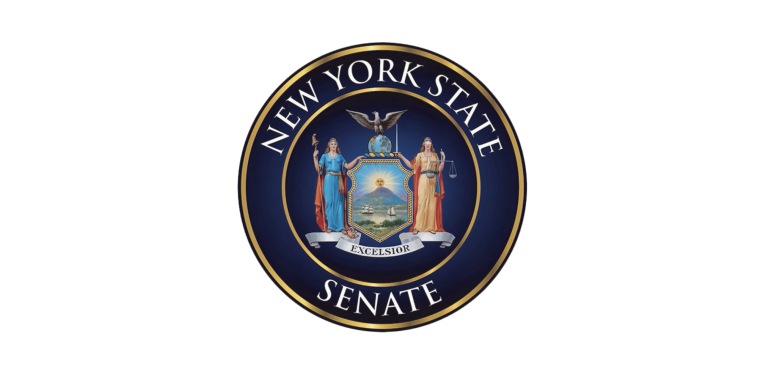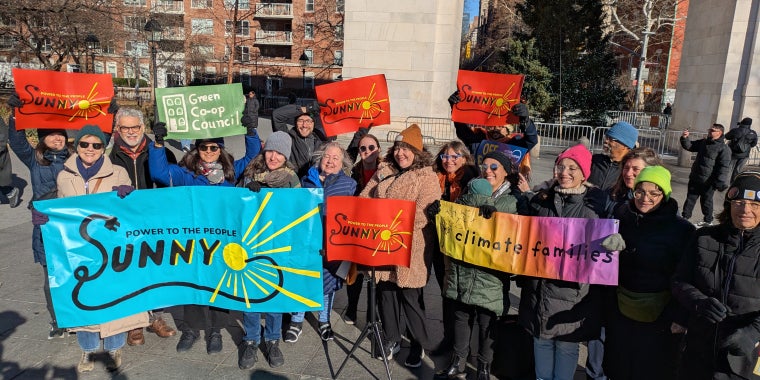
TREES Act Passes Senate
June 4, 2025

Albany – Today, the Tropical Rainforest Economic & Environmental Sustainability (TREES) Act, S.7203, passed the State Senate. This year's version of the bill made several changes to address concerns raised last year, while retaining its nation-leading impact. The bill is carried in the Assembly by Assemblymember Deborah Glick, Chair of the Environmental Conservation Committee.
“The climate crisis is a central driver of the affordability crisis, and New Yorkers can't afford inaction," said Senator Krueger. "We can't afford more years of drought, of deadly heat waves, blizzards, and tornadoes, or destructive cloudburst rains. The climate crisis drives up our home insurance, our healthcare costs, our utility rates, and our property taxes. New Yorkers are already paying the price for inaction, and the costs will only increase. Addressing our role in driving tropical deforestation is part of an all-hands-on-deck approach to the most pressing issue of our time."
Tropical forests harbor close to 50 percent of all species on Earth. Those species are now going extinct at a rate that is at least 100 to 1,000 times higher than historical levels, due to human activity. Taking into account carbon sequestration potential, stopping the loss of tropical forests, mangroves, and wetlands could provide over 20 percent of necessary climate mitigation by 2030.
Globally, an estimated 18,000,000 acres of forest, an area more than half the size of New York State, are lost every year to deforestation according to the Food and Agriculture Organization of the United Nations, with over one-half of Earth’s tropical forests already gone. At the current pace, the entirety of Earth’s tropical rainforests will be degraded or destroyed within the next 100 years.
Loss of biodiversity resulting from forest degradation and deforestation, as well as human encroachment on formerly undisturbed ecosystems, also increases the risks of zoonotic disease pandemics such as COVID-19.
The TREES Act would help to ensure that New York State government procurement does not drive tropical deforestation or degradation by tightening an existing state ban on the use of tropical hardwoods for government projects, and creating a new statute requiring state contractors who deal in forest-risk commodities to certify that their products don't drive deforestation. New York would be the first state in the nation to implement such a policy.
Many businesses throughout the United States and across the world are already increasingly engaged in efforts to ensure their supply chains are transparent, traceable, ethical, and environmentally sound, whether in reaction to consumer pressure or government regulation, or out of an understanding of corporate social responsibility. Businesses that achieve ethical and sustainable supply chains may also be able to increase their appeal with certain consumers, charge premium prices, or access previously untapped markets as a result of their efforts.
In order to remain competitive, New York businesses, particularly small and medium-sized businesses and minority- and women-owned businesses, must be able to take advantage of and stay ahead of this socially responsible and beneficial trend. The proposed Supply Chain Transparency Assistance Program, included in the TREES Act, to be administered by Empire State Development, would be available to New York-based small and medium-sized businesses, as well as MWBEs, to help them establish more ethical and sustainable supply chains, while ensuring they have the tools they need to compete in the national and global marketplace.
“New Yorkers have demonstrated time and time again, in election after election and poll after poll, that they care about our shared environment," Senator Krueger continued. "I do not believe New Yorkers want their tax dollars contributing to the destruction of tropical rainforests, and I am committed to seeing this bill become law in New York.”
“The climate crisis is a central driver of the affordability crisis, and New Yorkers can't afford inaction," said Senator Krueger. "We can't afford more years of drought, of deadly heat waves, blizzards, and tornadoes, or destructive cloudburst rains. The climate crisis drives up our home insurance, our healthcare costs, our utility rates, and our property taxes. New Yorkers are already paying the price for inaction, and the costs will only increase. Addressing our role in driving tropical deforestation is part of an all-hands-on-deck approach to the most pressing issue of our time."
Tropical forests harbor close to 50 percent of all species on Earth. Those species are now going extinct at a rate that is at least 100 to 1,000 times higher than historical levels, due to human activity. Taking into account carbon sequestration potential, stopping the loss of tropical forests, mangroves, and wetlands could provide over 20 percent of necessary climate mitigation by 2030.
Globally, an estimated 18,000,000 acres of forest, an area more than half the size of New York State, are lost every year to deforestation according to the Food and Agriculture Organization of the United Nations, with over one-half of Earth’s tropical forests already gone. At the current pace, the entirety of Earth’s tropical rainforests will be degraded or destroyed within the next 100 years.
Loss of biodiversity resulting from forest degradation and deforestation, as well as human encroachment on formerly undisturbed ecosystems, also increases the risks of zoonotic disease pandemics such as COVID-19.
The TREES Act would help to ensure that New York State government procurement does not drive tropical deforestation or degradation by tightening an existing state ban on the use of tropical hardwoods for government projects, and creating a new statute requiring state contractors who deal in forest-risk commodities to certify that their products don't drive deforestation. New York would be the first state in the nation to implement such a policy.
Many businesses throughout the United States and across the world are already increasingly engaged in efforts to ensure their supply chains are transparent, traceable, ethical, and environmentally sound, whether in reaction to consumer pressure or government regulation, or out of an understanding of corporate social responsibility. Businesses that achieve ethical and sustainable supply chains may also be able to increase their appeal with certain consumers, charge premium prices, or access previously untapped markets as a result of their efforts.
In order to remain competitive, New York businesses, particularly small and medium-sized businesses and minority- and women-owned businesses, must be able to take advantage of and stay ahead of this socially responsible and beneficial trend. The proposed Supply Chain Transparency Assistance Program, included in the TREES Act, to be administered by Empire State Development, would be available to New York-based small and medium-sized businesses, as well as MWBEs, to help them establish more ethical and sustainable supply chains, while ensuring they have the tools they need to compete in the national and global marketplace.
“New Yorkers have demonstrated time and time again, in election after election and poll after poll, that they care about our shared environment," Senator Krueger continued. "I do not believe New Yorkers want their tax dollars contributing to the destruction of tropical rainforests, and I am committed to seeing this bill become law in New York.”
###
related legislation
Share this Article or Press Release
Newsroom
Go to NewsroomRead More
Read More
Read More

